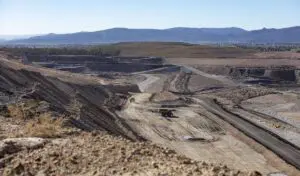When it comes to mitigating the impacts of climate change, shareholder activism is not the only thing keeping company leaders awake at night.
There is now a rapidly growing realisation by company directors and executives that climate change risks really ought to be a major focus of a board’s agenda.
This extends to detailed scenario planning and analysis of the physical impacts of a changing climate, as well as the transitional and reputational risks associated with rapidly evolving global expectations and commitments such as the Paris Agreement, which came into force last year.
But perhaps more worrying for some, it could also extend to a personal legal exposure stemming from a failure to disclose climate-linked financial risks to the share market.
Now is the time for boards and senior management to give thorough consideration to the risks (transitional, reputational and physical) posed by climate change, with a view to ensuring that these risks are incorporated into their strategic decision making. In particular, appropriate consideration needs to be given to the need for disclosure of any relevant financial-related risks.
The focus on these issues has been sharpened in recent months with the release of some influential opinions in legal and regulatory circles.
Barrister Noel Hutley SC caused waves in October last year with a paper on “Climate Change and Directors’ Duties” for the Centre for Policy Development and the Future Business Council.
In it he argued that: “It is likely to be only a matter of time before we see litigation against a director who has failed to perceive, disclose or take steps in relation to a foreseeable climate-related risk that can be demonstrated to have caused harm to a company (including, perhaps, reputational harm)”.
In February of this year, the Australian Prudential Regulation Authority’s executive board member Geoff Summerhayes said in a speech that “the days of viewing climate change within a purely ethical, environmental or long-term frame have passed”.
As Mr Summerhayes rather bluntly put it: “If entities’ internal risk management processes are not starting to include climate risk as something that has to be considered – even if risks are ultimately judged to be minimal or manageable – that seems a pretty reasonable indicator there might be something wrong with the process”.
“Similarly, if you’re an investor and you’re not already asking questions about how the companies you invest in approach these issues – perhaps you should be,” he said.
Then in March, the Australian Securities and Investments Commission (ASIC) told a federal Senate committee hearing on climate change risk disclosure that it agreed with a view that directors must consider and disclose climate risks to fulfil their duties under corporations legislation.
Following those hearings, the Senate Economics References Committee reported last month [APRIL] in its paper titled “Carbon risk: a burning issue”. Its recommendations included that ASIC review its guidance for directors on carbon risk and that the ASX give guidance on the circumstances in which a listed entity’s exposure to carbon risk requires disclosure.
It’s not just Australian legal and regulatory experts in the field that are raising the temperature.
The Task Force on Climate-related Financial Disclosures, part of global financial system advisory body, the Financial Stability Board (FSB), is developing recommendations for voluntary climate-related financial disclosures that are “consistent, comparable, reliable, clear, and efficient, and provide decision-useful information to lenders, insurers and investors”.
The Task Force, set up following a request by the G20 for the FSB to examine these issues, is due to give a final report to the G20 this year.
Among its influential members from the global business community are its chair Michael Bloomberg, the prominent US businessmen and former New York mayor, as well as Australian member Dr Fiona Wild, vice president, climate change and sustainability at BHP Billiton.
Its draft recommendations included the advice that financial impact assessment should require senior management engagement; that disclosure needs to be useful; and that a claim that companies are waiting for better data tools should not be viewed as good enough.
Importantly, the Australian Senate’s “Carbon risk: a burning issue” report urged the Federal Government to commit to implementing appropriate recommendations of the FSB’s Task Force, including via law reform, along with a broader review of the adequacy of the Corporations Act to cover climate issues.
The forecast for executives and directors is clear: If they are not already worried about climate change risk planning and climate-related market disclosure – and the potential for costly litigation that might follow – then they should be.
Elisa de Wit is a partner and head of climate change and sustainability at global law firm Norton Rose Fulbright.











